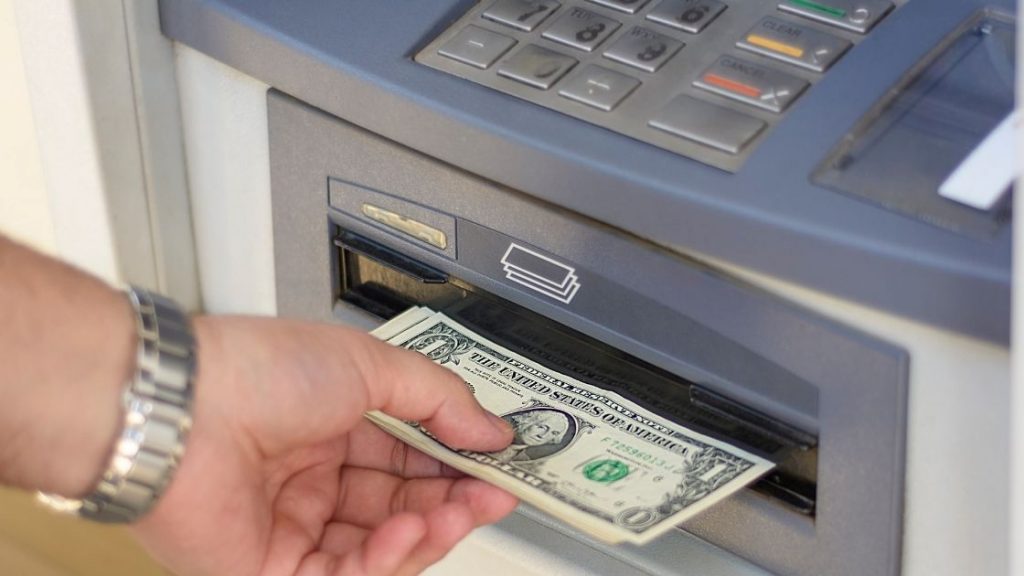We see vending machines everywhere.
The sales from those little candy bars, potato chips, and sodas create a huge market.
In the U.S. alone, vending machines take in an estimated $20 billion to $30 billion in annual gross sales.
Source: Chron
So we know it can be profitable. But the real pull of a vending machine business is its ability to generate passive income. Those machines don’t care that you are sleeping, walking your dog, or sunbathing, they will keep cranking out sales day after day and week after week.
Pretty intriguing if you ask me.
In this guide, we are going to cover four areas:
Part I: Introductory questions on the vending machine business (what are they, how much money do they make, etc.)
Part II: How to Start a Vending Machine Route (including how to make it passive)
Part III: How to Buy a Vending Machine Route (if you want a ready made business)
Part IV: Benefits and Risks of Vending Machine Business
That’s a lot to cover, so let’s get into it!
This post may contain affiliate links. If you click on a link and complete a transaction, I may make a small commission at no extra cost to you.
The information contained in this post is for informational purposes only. It is not a recommendation to buy or invest, and it is not financial, investment, legal, or tax advice. You should seek the advice of a qualified professional before making any investment or other decisions relating to the topics covered by this article.
What is a Vending Machine Business?
A vending machine business is a business where you have one or more vending machines in various locations and earn money from sales generated by those vending machines.
A large part of the business involves running periodic routes to these locations. During these routes, you stock up your machines with inventory and any coins needed for change. You also collect money from your vending machines.
The typical vending machines offer drinks or snacks. But there are a wide variety of machines available including something as simple as a gumball machine that can cost under $200 to much more expensive vending machines that can run between $3,000-$5,000.
Vending machines stocking healthy food options are gaining popularity as well.
Vending machines can offer a variety of payment options, from simple coin-operated payments to credit card readers (with some newer models offering mobile payment options as well).
How Much Do Vending Machines Earn?
Most vending machines earn less than $5 a week, but a successful one can earn much more than that. Some well-placed vending machines can earn $100 a week or more.
Source: Chron
A good rule of thumb on how much a machine should sell per week to be worthwhile is $150. Another good rule of thumb is that office locations might see $1.50 per person, per week and a blue-collar workplace will see $3-$6 per person, per week.
Source: Fitsmallbusiness
These rules of thumb may be helpful when you are trying to figure out which locations you should be targeting for your vending machines.
Do Vending Machines Provide Passive Income?
Vending machine routes can provide passive income when structured correctly. To make your vending machine business as passive as possible you should do the following:
- Buy high-quality machines that won’t need constant repair
- Install inventory tracking software that will optimize your routes
- Hire reliable route runners
- Have a machine repair service in place to repair your machines
Once you have these key processes in place you will be well on your way to enjoying passive income provided by your vending machines.
All of the steps above are important to make your business passive and successful, but let’s focus a bit on the software you should install on your machines.
To make your business as streamlined as possible, you will need to install software in each of your machines that will tell you when inventory is getting low. This is essential to run a smooth and hassle-free operation.
This software can keep track of sales (including cash, credit card, and mobile payments) and other key metrics (including which items are selling well). This will help you maximize the profitability of each machine.
The sales tracking software also helps discourages your route runner from pocketing any cash from the machines because you can track everything to the penny. It can also alert you when there are errors on your machine that you may want to service.
Where can you buy vending machine tracking software?
The following companies are the leading providers of vending machine software:
If you want to expand your vending machine operations, you can do this passively too. Simply hire services that will find locations for new vending machines. Here’s a site that provides several options.
How Do I Start a Vending Machine Route?

The first thing you need to do is set up your vending machine business.
Selecting Name and Logo
This includes selecting a name and logo that you like and creating a website (if you want your business to have an online presence).
Having trouble figuring out a name? Try Shopify’s business name generator. It’s free.
As for a logo, I have zero artistic ability and limited tech skills, so I like a simple and easy to use option.
Looka will provide you a professional looking logo at reasonable prices. You can choose from hundreds of logo designs (based on parameters and preferences you select) before settling on one you like. You can also customize to your heart’s content. Check them out here.
Note: You want to make sure your name and logo are original to you and are not going to infringe someone else’s intellectual property. If you are unsure, you can check the USPTO’s trademark search tool as a starting point.
Set Up Your Website
When it comes to your website, it does not have to be incredibly fancy or cost a lot of money to set up. There are a lot of resources available to help you with this.
In fact, Google allows you to build your first business website for free.
It is also important to get your new vending machine business on Google. You can do this by listing it on Google My Business. This way, people who are searching for vending services in your area can find you (imagine how great it would be if a local shop owner called you to supply a vending machine in their location instead of the other way around?).
If you want to learn more about how to do this, check out this tutorial from Google.
If your business is going to be a corporation, LLC, or some other business entity, you should establish that as well. You can hire a lawyer to help you or you can use many of the online resources that can help you set up your business entity.
I like Northwest because they can get you up and running quickly and easily. They are also one of the most affordable options that I was able to find that still offered great customer service ($39 as of the date of this article).
According to their website, they are the only national registered agent service that lets you use their office address so you don’t have to use your own. That’s a killer privacy advantage.
Definitely worth checking out.

You should consult with your accountant and lawyer before taking this step, so you understand the tax and legal consequences of setting up this type of organization for your business.
Buy Your Vending Machines
After the initial set-up, the next thing you will need to do to start your vending machine business is get a vending machine. Pretty obvious, right?
There are a lot of places to purchase vending machines.
Where Can I Buy New Vending Machines?
The following companies sell new vending machines:
Where Can I Buy Used Vending Machines?
The following companies sell used vending machines:
You should check out all of the varieties of machines available.
Learn as much as you can about the machines on offer. Then you can figure out what types of machines you want to buy based on your budget and goals.
In selecting your strategy and the types of machines to buy, you should consider your target locations, your local demographics, changing trends, and evolving payment options. We discuss many of these factors in the “Risks” section below.
How Do I Find Great Locations For Vending Machines?
The best locations for your vending machines are places where large groups congregate and do not have convenient alternatives for food and drink.
Here are some of the best locations for your vending machines:
- Apartments
- Hotels
- Offices
- Factories
- Nursing homes
- Banks
- Airports
- Laundromats
- Car Dealerships
- Auto repair shops
- Schools
Finding and securing a good location for your vending machine is probably the hardest but most important part of getting started. The quality of your location will be the biggest factor in your profitability.
What are some concrete ways to start finding the best locations?
We already discussed the possibility of using a service that can find locations for you. That may not be a bad choice if you are starting out.
If you want to be more hands-on, you should explore locations on your own. Go to the places listed above. See what they say. Even if many of these locations have vending machines already, you will get an idea of what your competition is doing (i.e., what types of machines are there, whether there are opportunities to offer a better product, etc.).
I know someone who focused on schools. They were able to secure long-term contracts with the school board to supply vending machines to every school in the district.
It skyrocketed their business.
They did have to deal with occasional vandalism and repairs, but on balance, they were doing quite well with that strategy.
You can use Reference USA to find local businesses that might match your criteria. You can search by numbers of employees, for example, and get a sense of how good the traffic will be for that location.
If there is already a machine on-site, don’t give up. You may be able to persuade them if you have a newer machine that offers better options or covers a different demand (like healthier food and drinks). Filtered water machines, for example, can be a way in to many offices that already have vending machines.
Run Your Routes
We talked a bit about this already, but you must be prepared to run routes regularly (more often as your business grows). You can do it yourself or hire someone.
This is going to be the most work-intensive part of the business. You will need to stock up on inventory, deliver the inventory to the machines, refresh coins, and collect money.
It’s not a big deal when you have one machine. When you have a 200, it becomes a daily routine that requires significant logistical planning. The vending software helps a lot, but you (or someone you hire) will still need to run the actual routes.
Related reading: If you are worried about the hassles involved in running routes for your vending machine, you may want to consider a similar business, like ATM machines.
They are much easier to stock. You don’t need to keep track of all of the different snacks and sodas and buy them when you run low. You just need to replenish cash (and there are plenty of services that will replenish cash reserves for you). I wrote a complete guide to investing in ATM machines for passive income that you may find interesting.
Buying a Vending Machine Route
If you want a ready-made business that already has great routes and is making money, buying a vending machine route may be a good choice for you. Let’s explore how you can buy one.
Where Can I Find Vending Machine Businesses For Sale?
The easiest way to find an existing vending machine route for sale is going online. Here are some of the top sites selling vending machine businesses:
The listings will usually include the asking price, revenue, and other key information to help you determine if the business is right for you.
Key Factors to Consider When Buying A Vending Machine Route
Ask the seller why they are selling. Does their explanation make sense? Ask probing questions to see if their explanation holds water. If something doesn’t smell right, don’t move forward until you are comfortable.
Inspect all of the machines. You want to make sure they are not outdated or in disrepair. If they accept cash only, that could be a problem. You want machines that are outfitted for credit cards (mobile options are a nice bonus).
Cash only machines can be less profitable because they are a hassle to use (and they may eventually become obsolete).
Verify that the asking price is fair. You can hire a valuation expert or use software like BizEquity. If you examine enough of the listings in your area, you should be able to get a pretty clear sense of what is standard in the market.
Examine the numbers. You want sales reports for the machines. Examine them thoroughly. You also want at least 3 years of tax returns. Work with your accountant to make sure the numbers make sense.
Talk with the site owners (without the seller present, if possible). See how they really feel about the vending machines. Are they happy with the traffic? Is their relationship with the current owner good? Would they be willing to extend their contract?
Make sure the site contracts are in order. Check when the contracts with the locations are expiring. Look for any exclusivity clauses that guarantee that the site owner will only use you and see if there are change of control clauses. If a change of control clause exists, the site owner or manager may be able to get out of the contract when the business changes hands.
It’s best to get a lawyer to examine the contracts so you know the legal landscape.
Ask for a clearance letter from the seller. This lets you know if there are unpaid taxes by the seller. You don’t want to be on the hook for that after the sale.
Check with the better business bureau for complaints. It’s always smart to make this final check.
Now that we’ve covered the nuts and bolts of starting (or buying) a vending machine route, let’s get into the benefits and risks of owing this type of business.
Benefits of a Vending Machine Business
The main benefits of a vending machine business are: (i) potential for strong profits; (ii) passive income; (iii) independence; (iv) and scalability.
Potential for Strong Profit
We talked about the potential earnings numbers already, so I won’t go into that again. Vending has the potential to generate significant profits for the business owner.
A handful of well-managed, well-maintained machines placed in great, high-traffic locations can yield terrific income for the owner.
Passive Income
We discussed this already, but there are few things sweeter than getting paid while you sleep.
Independence
If you have your own successful business, you do not answer to anyone. Hard to put a price on that.
Scalability
Scaling a vending machine business is very straightforward. Buy more machines and find great locations for them. There are really are no limits to how big you can grow your business.
Risks of a Vending Machine Business
The key risks of a vending machine business are: (i) competition, (ii) changing tastes, (iii) vandalism, and (iv) obsolescence.
Competition
Risk: Like any business, vending is competitive. So you may have competitors visiting locations where your machines are and offering the owner or manager of the location more money (a larger percentage of the machine’s net profits) to force you out.
Mitigation: Most owners and managers at the locations where your vending machines are placed will reject a competitor’s offer if you are a good business partner with them. If you have contract with the location owner, you may want to include some form of exclusivity provision to prevent the owner from going with a competitor while the contract is in force.
To keep your location owners happy make sure your machines are clean, working properly, and fully stocked. Also pay them a fair percentage of the machine proceeds – you don’t want them to think you have been swindling them if a competitor offers them something better.
Changing Tastes
Risk: Selling candy, soda, and potato chips was a guaranteed way to make money for many years. However, with the general public’s tastes moving away from these products and toward healthier alternatives, profiting from these items has become more difficult.
Mitigation: Be aware of cultural changes as they relate to food and health and don’t be afraid to experiment with new products (including some of the healthier snack options available today).
Vandalism
Risk: Because vending machines are filled with cash and coins and are not manned, they can be tempting targets for thieves to steal the money and products inside.
Mitigation: Machines in high-traffic indoor areas are mostly immune from theft and vandalism, but outdoor machines are more vulnerable. Heavy-duty braces and guards can be purchased and placed over the coin box area to deter potential thieves.
Also, converting to credit card or mobile payment technology will help prevent losses like this.
Obsolescence
Risk: Cash used to be the only way to purchase products from a vending machine, but more modern payment options have made cash-only machines almost obsolete. If you fail to adapt to this technological change, you will probably lose sales because customers carry less cash than they used to.
Mitigation: Whether you currently own vending machines or are planning to enter the vending business, make sure your machines are outfitted with card-acceptance and/or mobile payment technology.
Conclusion
Vending Machines can be a terrific way to earn passive income and get out of the rat race.
But, as you can see by now, it’s not as simple as buying a few machines and waiting for the cash to come in. If you want lasting success, you must properly execute on the key things that go into running a profitable vending machine route.
This includes buying the right machines, finding the right locations, having the appropriate tracking software, running efficient routes, and protecting yourself against the key risks involved in this business.
Further Reading
If you want more great passive income ideas, check out my ultimate beginner’s guide to passive income [25+ strategies that work], where I cover tons of effective strategies that generate passive income.
One of my favorite articles on passive income is my piece on businesses that run themselves. In that article, I cover some great businesses that can generate attractive levels of return without a lot of day to day involvement by the owner (obviously, vending machines are included in the list, but there are many more). Check it out here.
Also, if you want other great passive income ideas that may be less expensive (and more low maintenance) than a vending machine business, check out my article on 15 ways to make truly passive income with no money.

